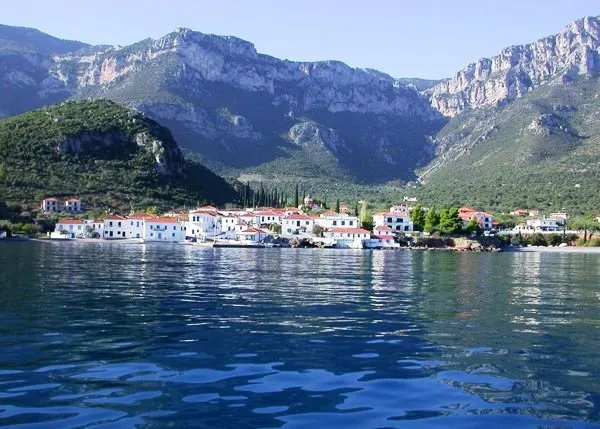Elgin Marbles could return to Greece under new 'Parthenon partnership' to establish greater 'cultural exchange', the deputy director of British Museum says
Dismembering the Monument: The removal of the Parthenon sculptures by agents of the British Ambassador to the Ottoman Empire, Thomas Bruce, 7th Earl of Elgin. From the book "In Search of Greece," catalogue of the Exhibit of Drawings at the British Museum by Edward Dodwell and Simone Pomardi, from the Collection of the Packard Humanities Institute, 2013.
The Elgin Marbles could be returned to Greece after more than 200 years as part of a 'Parthenon partnership' proposed by the deputy director of the British Museum.
The marbles are made up of 17 marble figures and are part of a frieze that decorated the 2,500-year-old Parthenon temple on the Acropolis, made by sculptor Phidias.
The sculptures were taken by Lord Elgin in the early 19th century when he was the British ambassador to the Ottoman Empire, and have since been the subject of a long-running dispute over where they should be displayed.
The Elgin Marbles are currently on display at the British Museum, but the Greek government has been demanding their return for years.
Around 260ft (80metres) of the marbles are in London, whilst Athens is home to a smaller 164ft (50metres) section.
In an interview with the Sunday Times Culture magazine, deputy director Jonathan Williams said the British Museum wants to 'change the temperature of the debate' around the marble works of art.
Mr Williams said: 'What we are calling for is an active "Parthenon partnership" with our friends and colleagues in Greece.
'I firmly believe there is space for a really dynamic and positive conversation within which new ways of working together can be found.'
Taken in 1801, the British Museum has denied previous suggestions that the Marbles were 'hacked' from the site of the temple.
Deputy director of the British Museum Dr Jonathan Williams said: '[They were] in fact removed from the rubble around the Parthenon.
'These objects were not all hacked from the building as has been suggested.'
The museum's attempt to reject the historical account of the sculptures' acquisition has been challenged by classicists.
Letters written to Lord Elgin by his subordinates in 1801 appear to support the Greek version of events, with a note from Giovanni Batista Lusieri confessing to his master that he 'had been obliged to be a little barbarous' in removing some sculptures from the Parthenon temple.
The British Museum has not said it will hand the sculptures back, with Mr Williams arguing they are an 'absolutely integral part' of the collection.
However, he said they 'want to change the temperature of the debate', adding that all sides need to 'find a way forward around cultural exchange of a level, intensity and dynamism which has not been conceived hitherto'.
He added: 'There are many wonderful things we'd be delighted to borrow and lend. It is what we do.'
The Greek prime minister has called for the Parthenon Marbles to be returned to Greece on many occasions, even offering to loan some of his country's other treasures to the British Museum in exchange.
Kyriakos Mitsotakis has restated that Greece is open to negotiations but said 'baby steps are not enough. We want big steps'.
The director of the Acropolis Museum, Nikolaos Stampolidis, also said there could be a 'basis for constructive talks' with the 'positive Parthenon partnership' offer.
He added: 'In the difficult days we are living in, returning them would be an act of history.
'It would be as if the British were restoring democracy itself.'
Nikolaos Stampolidis, the director of the Acropolis Museum, said there could be a 'basis for constructive talks' with the 'positive Parthenon partnership' offer, The Telegraph reports.
'In the difficult days we are living in, returning them would be an act of history. It would be as if the British were restoring democracy itself,' he added.
Source: dailymail.









